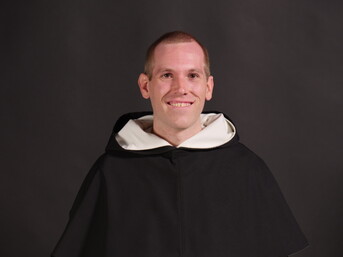Was the Big Bang the beginning of the universe? I honestly don't know. I do know that there was a beginning of the universe, because this is an article of faith. I do not know if the Big Bang was the first moment. Cosmologists have different ideas about this, and scientific theories continue to evolve.
In the time of Einstein, the prevailing cosmological paradigm was the steady-state universe, with stationary stars and galaxies that always existed. Fr. Georges Lemaître upended this paradigm by showing that Einstein's own theory of General Relativity allows for or even supports an expanding universe. Soon, observations that galaxies have been moving apart from each other confirmed that the universe is expanding. Lemaître inferred that if you go back far enough in time, you would find all of the universe's energy and matter compressed into one primeval atom. Later calculations in general relativity suggested that there would have been a singularity, a point of infinite density. It seemed natural to call this a beginning in time, but Lemaître was careful to distinguish between his scientific model and the revealed truth that the universe had a beginning.
Cosmology has continued to develop since then. These days, when scientists refer to the Big Bang theory, they are not speaking about an initial point of time but about the process of universal expansion from an earlier hot, dense universe. There are now some interesting cosmological models in which this hot, dense state is not a beginning in time and in which there is no beginning in time (For instance, see Andrei Linde's eternal inflation scenario). These theories are speculative and often controversial, even among cosmologists. Others have been developing mathematical theorems that prove, given some general assumptions, that tracing the history of things in the universe cannot go back forever (For instance, see the BVG theorem and Aron Wall's work with the Generalized Second Law of Thermodynamics).
What would St. Thomas Aquinas say about this? In his day, there was another controversy about whether or not the universe had a beginning. Christian theologians were debating about Aristotle and Avicenna's reasons for thinking that the world had no beginning in time. Aquinas argued that reason without the aid of revelation could not determine whether or not time had a beginning (ST I, q. 46, a. 2). If God wanted to create a world without a beginning in time, He could have. If He had, we would still say that the world was created, because of a causal dependence on God. Aquinas thought that there was nothing you could look at in the world that could tell you whether or not this world always existed. Instead, we know that there was a beginning only because God tells us so, through Scripture.
Aquinas may well be right that there is no observation or calculation we can make to definitively tell us that time had a beginning. But I believe, by faith, that it did have a beginning. Whatever the current scientific consensus or lack of consensus says about the beginning, we can still marvel at the beauty, goodness, and order of the universe and reason to its dependence on the creative power of God.

Br. Paschal Strader, O.P. | Meet the Brothers in Formation HERE
